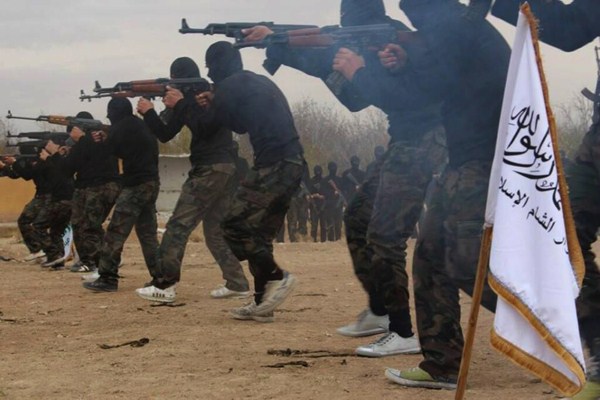Last week, on Sept. 9, the entire leadership of one of Syria’s strongest rebel groups, Ahrar al-Sham, was killed in a blast during a secret meeting in Idlib, in northern Syria. A dozen of the deeply conservative Salafi movement’s leaders died in the attack, which some sources claim was a suicide bombing and others an airstrike by Bashar al-Assad's regime. As the United States mobilizes an international coalition against the militants of the Islamic State group, with plans to train 5,000 moderate Syrian rebels, the attack could have domino effects across the conflict, especially among often-shifting rebel alliances.
The killing of Ahrar al-Sham’s leadership, says Aron Lund, editor of the Carnegie Endowment’s Syria in Crisis website, “might cause some chaos and competition within the non-jihadi parts of the opposition that the U.S. wants to support.”
Lund calls Ahrar al-Sham—which dominated the Islamic Front, a reportedly 50,000-fighter-strong coalition of Islamist battalions—“the swing voter” of Syria’s armed insurgency. “They have occupied this middle ground between the jihadis properly speaking—Jabhat al-Nusra, al-Qaida and, even further beyond that, the Islamic State—and the sort of soft Islamist, Muslim Brotherhood-style or nationalist pseudo-secular kind of groups, like the Free Syrian Army,” he explains.

